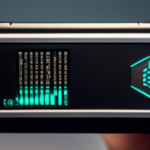In the fast-evolving world of cryptocurrency, where terms like mining, staking, and blockchain are common, cloud mining is gaining traction as a new approach to cryptocurrency mining. Unlike traditional mining, which involves considerable physical hardware and electricity costs, cloud mining allows individuals to mine cryptocurrencies without the need for specialized equipment. This article will delve into the workings of cloud mining, its pros and cons, and how you can engage in this unique sector of the crypto market.
Understanding the Basics of Mining
Before diving into cloud mining, it’s essential to understand what mining entails in the context of cryptocurrency. Mining is the process of validating transactions on a blockchain and adding them to the distributed ledger. This process is energy-intensive and typically requires significant computational power.
Cryptocurrencies like Bitcoin use a consensus mechanism called Proof of Work (PoW), which requires miners to solve complex mathematical problems. Miners are rewarded with newly minted coins for their efforts, making mining a lucrative but resource-heavy endeavor.
What is Cloud Mining?
Cloud mining separates the hardware and software necessary for mining from the individual miner. Instead of purchasing expensive mining rigs, individuals lease or rent the processing power from remote data centers that perform the mining on their behalf. In essence, cloud mining allows users to partake in the mining process without the need for direct involvement or infrastructure investment.
How Cloud Mining Works
- Choosing a Cloud Mining Provider: The first step in cloud mining is selecting a reputable provider. Various companies offer cloud mining services, often with different packages tailored to specific cryptocurrencies, such as Bitcoin, Ethereum, and others.
- Signing Up and Choosing a Plan: Once you’ve chosen a provider, you’ll need to create an account and select a mining plan. Most providers will have several tiers of service, each with different prices, hashing power (the computational power used in mining), and expected returns.
- Contract Duration: Cloud mining contracts can vary in length — from a few months to several years. Longer contracts may promise higher returns, but they also come with risks.
- Receiving Your Earnings: As mining occurs in the cloud, any rewards generated will typically be credited directly to your account. Some providers may have minimum withdrawal amounts or other restrictions.
Advantages of Cloud Mining
- Reduced Complexity: Cloud mining minimizes the technical know-how required to start mining cryptocurrencies. Users do not need to manage hardware, install software, or deal with the intricacies of mining setups.
- Cost-Effective: For many, purchasing mining rigs can be prohibitively expensive. Cloud mining eliminates the need for this capital expenditure, enabling more individuals to participate in the mining sector.
- No Maintenance Fees: When you rent cloud mining power, the service provider is responsible for maintenance and repairs. This alleviates the burden of hardware failure or associated costs.
- Access to Remote Mining: Cloud mining facilities are often located in areas where electricity is cheap, maximizing profitability. By leveraging this resource, cloud mining often comes with higher efficiency.
- Scalability: Users can adjust their contracts based on their needs and can quickly scale their operations up or down without substantial investment in additional hardware.
Disadvantages of Cloud Mining
- Risk of Scams: The cloud mining market is rife with scams and illegitimate operations. Many firms make unrealistic promises about profitability, so due diligence is crucial.
- Lack of Control: When you engage in cloud mining, you relinquish control over the hardware and mining operations. If the company operates unethically or faces issues, your investment may be jeopardized.
- Profitability Concerns: Cryptocurrency markets can be volatile, and the profitability of mining contracts can be influenced by factors like cryptocurrency prices, network difficulty, and energy costs.
- Hidden Fees: Cloud mining contracts may have hidden fees that can diminish returns. Be sure to read the fine print and understand all costs associated with your chosen service.
Getting Started with Cloud Mining
To start cloud mining, follow these steps to navigate the process successfully:
- Research Providers: Investigate and compare various cloud mining services by reading user reviews, checking transparency of their operations, and scrutinizing their terms of service.
- Assess Profitability: Use online mining profitability calculators to estimate potential gains from cloud mining. Input key variables such as hash rate, contract duration, and cryptocurrency price to find realistic estimates.
- Read the Terms: Understand the terms and conditions of the service you choose, particularly regarding payouts, fees, and contract duration.
- Diversify Investments: Given the volatility in the cryptocurrency market, consider diversifying your investments across multiple mining contracts or cryptocurrencies.
- Monitor Progress: After starting your cloud mining contract, regularly monitor your returned earnings and the cryptocurrency market. This will help you make informed decisions on future investments or contract renewals.
Conclusion
Crypto cloud mining presents a unique opportunity for individuals wanting to participate in the world of cryptocurrency without the barriers of traditional mining setups. While there are numerous benefits, caution must be exercised to avoid scams and ensure that the chosen provider is reputable.
In the rapidly transforming landscape of financial technology, cloud mining stands out as a compelling option for newcomers and seasoned miners alike. As you embark on your cloud mining journey, keeping abreast of market trends and maintaining a vigilant approach will play a critical role in maximizing your crypto investments.
FAQs on Crypto Cloud Mining
1. What is Crypto Cloud Mining?
Answer: Crypto cloud mining is a process where individuals can earn cryptocurrency by leasing mining power from a remote data center. Instead of purchasing and managing hardware, users pay a service provider to mine on their behalf, allowing them to earn cryptocurrency without the need for significant technical knowledge or expensive equipment.
2. How does Cloud Mining work?
Answer: In cloud mining, users purchase a plan from a hosting provider that allocates a certain amount of mining power (hashes per second). This power is used in the mining process on behalf of the user, who then receives the payouts based on the amount of hash power purchased and the overall performance of the mining operation.
3. Is Cloud Mining profitable?
Answer: The profitability of cloud mining varies based on several factors, including the price of cryptocurrency, the difficulty of mining, the fees charged by the cloud mining provider, and the mining pool’s efficiency. It is essential for users to do their own research and consider potential risks and rewards before investing.
4. What are the risks of Cloud Mining?
Answer: Risks include potential scams or untrustworthy providers, market volatility leading to decreased profitability, and maintenance or operational issues that could affect mining performance. It’s crucial to select a reputable cloud mining service and carefully review its terms.
5. Do I need technical knowledge for Cloud Mining?
Answer: No, one of the main advantages of cloud mining is that it does not require extensive technical knowledge. Cloud mining services handle the hardware, maintenance, and setup, enabling users to participate in mining with minimal technical expertise.
6. What types of cryptocurrencies can be mined through Cloud Mining?
Answer: Most cloud mining services focus on popular cryptocurrencies like Bitcoin, Ethereum, Litecoin, and Dash. Some providers may also offer mining for lesser-known altcoins. It’s important to check the specific offerings of each cloud mining platform.
7. How do I choose a reputable Cloud Mining provider?
Answer: To choose a reputable provider, look for established companies with a good track record, positive user reviews, transparency about their operations, clear terms and conditions, and no upfront fees that seem too good to be true. Research online forums and communities for recommendations.
8. Can I mine on my own after using Cloud Mining?
Answer: Yes, you can switch to self-mining at any time, but it typically requires purchasing mining hardware, managing the setup, and assuming responsibility for operational costs such as electricity. Many users start with cloud mining to gain experience before deciding to mine independently.
9. Do I need a wallet to receive my mined cryptocurrency?
Answer: Yes, you will need a cryptocurrency wallet to store the assets you earn from cloud mining. Cloud mining services usually allow you to withdraw your earnings to your linked wallet for better security and control over your funds.
10. Can I mine multiple cryptocurrencies at once through Cloud Mining?
Answer: Some cloud mining services allow you to mine multiple cryptocurrencies simultaneously, but this depends on the specific provider and the types of mining contracts they offer. Always check the details provided by the service.
11. How do payouts work in Cloud Mining?
Answer: Payouts are usually made on a scheduled basis, such as daily, weekly, or monthly, depending on the cloud mining provider’s policies. Users can choose to reinvest their earnings into additional contracts or withdraw them to their wallets.
12. What are mining contracts, and how long do they last?
Answer: Mining contracts are agreements that outline the terms of your cloud mining service, including the hash power you purchase and the duration of the contract. Depending on the provider, contracts can last from a few months to several years, or they may be based on a “pay-as-you-go” model without a fixed term.
Always exercise caution and conduct thorough research before participating in any mining activities, whether through cloud mining or otherwise.




 Bitcoin
Bitcoin  Ethereum
Ethereum  Tether
Tether  XRP
XRP  Solana
Solana  Dogecoin
Dogecoin  USDC
USDC  Lido Staked Ether
Lido Staked Ether  Cardano
Cardano  TRON
TRON  Avalanche
Avalanche  Wrapped stETH
Wrapped stETH  Chainlink
Chainlink  Toncoin
Toncoin  Wrapped Bitcoin
Wrapped Bitcoin  Shiba Inu
Shiba Inu  Sui
Sui  Stellar
Stellar  Hedera
Hedera  Polkadot
Polkadot  WETH
WETH  Bitcoin Cash
Bitcoin Cash  LEO Token
LEO Token  Hyperliquid
Hyperliquid  Uniswap
Uniswap  Litecoin
Litecoin  Pepe
Pepe  Wrapped eETH
Wrapped eETH  Aptos
Aptos  NEAR Protocol
NEAR Protocol  Ethena USDe
Ethena USDe  USDS
USDS  Internet Computer
Internet Computer  Aave
Aave  Cronos
Cronos  Ethereum Classic
Ethereum Classic  POL (ex-MATIC)
POL (ex-MATIC)  Mantle
Mantle  Render
Render  MANTRA
MANTRA  WhiteBIT Coin
WhiteBIT Coin  Monero
Monero  Dai
Dai  Artificial Superintelligence Alliance
Artificial Superintelligence Alliance  Bittensor
Bittensor  Arbitrum
Arbitrum  Filecoin
Filecoin  Algorand
Algorand  OKB
OKB  Fantom
Fantom  Cosmos Hub
Cosmos Hub  Ethena
Ethena  Stacks
Stacks  Optimism
Optimism  Ondo
Ondo  Immutable
Immutable  Celestia
Celestia  Bonk
Bonk  Virtuals Protocol
Virtuals Protocol  Injective
Injective  Coinbase Wrapped BTC
Coinbase Wrapped BTC  Binance-Peg WETH
Binance-Peg WETH  Theta Network
Theta Network  The Graph
The Graph  dogwifhat
dogwifhat  Movement
Movement  THORChain
THORChain  Sei
Sei  Worldcoin
Worldcoin  Rocket Pool ETH
Rocket Pool ETH  Pudgy Penguins
Pudgy Penguins  FLOKI
FLOKI  Gate
Gate  JasmyCoin
JasmyCoin  Mantle Staked Ether
Mantle Staked Ether  Lombard Staked BTC
Lombard Staked BTC  Maker
Maker  GALA
GALA  Tokenize Xchange
Tokenize Xchange  Lido DAO
Lido DAO  Solv Protocol SolvBTC
Solv Protocol SolvBTC  NEXO
NEXO  KuCoin
KuCoin  Usual USD
Usual USD  Pyth Network
Pyth Network  The Sandbox
The Sandbox  Beam
Beam  Kaia
Kaia  Renzo Restaked ETH
Renzo Restaked ETH  Tezos
Tezos  Raydium
Raydium  Brett
Brett